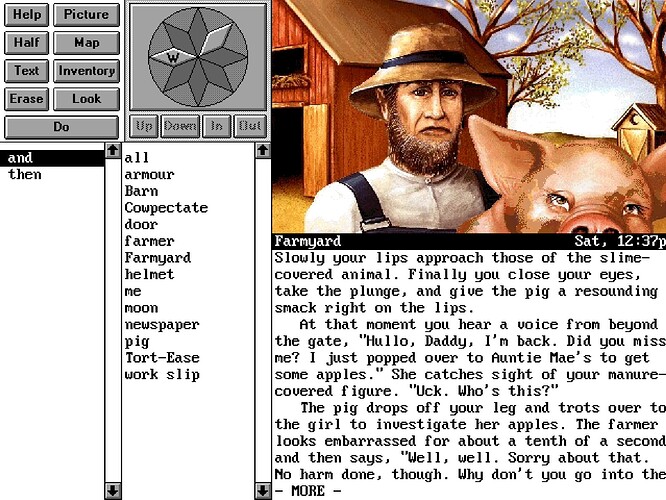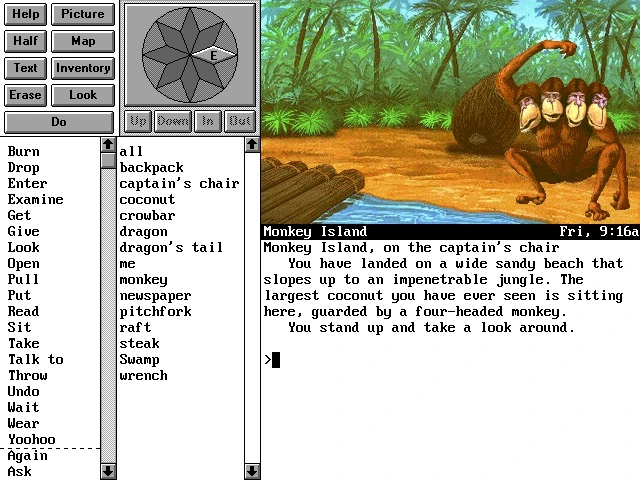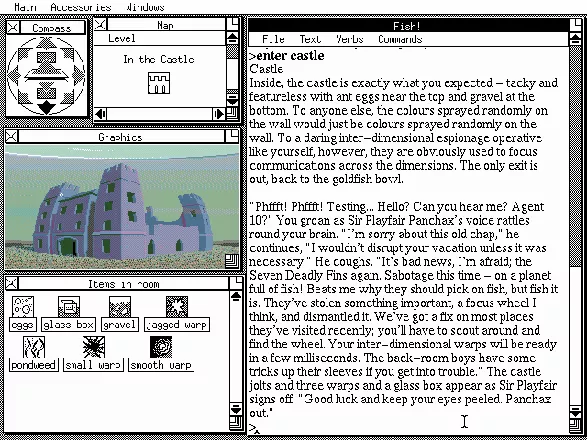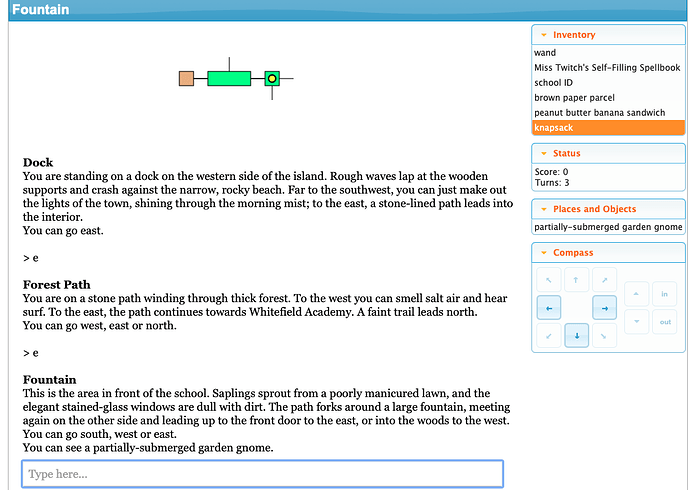Which also only uses a certain set of “common” verbs and command patterns, which are only known to people who already play a lot of parser games, and span between “unknown” and “paralyzing” for everyone else.
Also, sometimes it uses other verbs, too, but you only intuit that if you know the difference between game systems and their usual default vocab.
Also also, each game can add its own verbs, too, often without telling the player.
For the seasoned parser player, this is an essential part of what makes these games interesting. For everyone else, this is the most insane bit of game design ever presented to a new player in the history of game tutorials.
@zarf has helpful resources, but you need to know to find those, or you need to be introduced to parsers by someone else who has them at the ready, or you need to go the @pinkunz route and play a parser game as a two-player cooperative experience.
I’m only bringing this up, because—from a game design perspective—the problem with the barrier to entry goes way beyond just the CLI. Yes, the CLI is already very jarring for new players, but also way the commands are entered in and the required player expectations are an even deeper obstacle.
This is why I’m such a proponent for clickable text in a parser, especially if clicking the text also enters the command into the prompt for you. Players know what clickable text looks like. Boom, free tutorial. A new player can slowly pick up prompt patterns from what they’re clicking, and then they will practice using the command prompt directly, to have more speed and precision for their actions.
No infodump, no long-winded how-to screen, etc.
HTML TADS has a giant opportunity for this, but authors cannot rely on the presence of clickable text because not all interpreters support that, which is why I—in good faith—couldn’t lean on that for the I Am Prey beta.
EDIT: THIS IS NOT THE TIME OR PLACE TO HAVE ANOTHER TADS INTERPRETER FIGHT. DO THAT IN ANOTHER THREAD. PLENTY HAVE ALREADY BEEN DERAILED OVER THIS.
EDIT 2: Honestly, Quest and QuestJS both also have a lot of opportunities to do this. In some ways, they are positioned even better, but I’m not familiar enough with how those work to know if more than just traditional puzzle games can be made with those.



